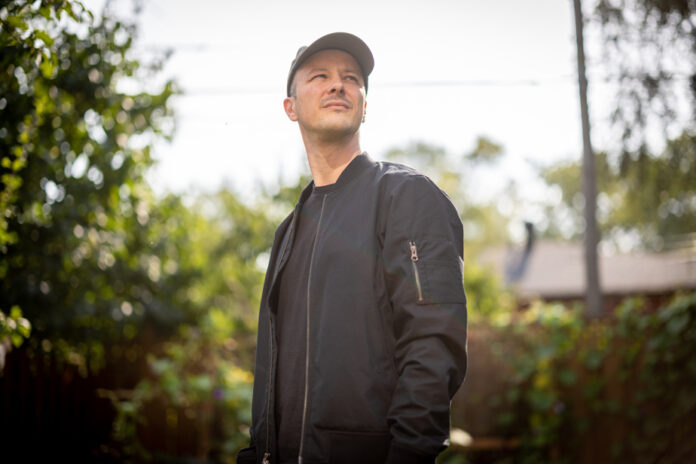How can you live a happy life while knowing that the people you love are going to die? This is the question that Simon Brousseau attempts to answer in Every wound is a promise, a chronicle both implacable and luminous of his father’s illness, a memento mori generous in universal truths that have rarely been so well written.
A 4 year old girl. 9 month old twins. A job as a CEGEP teacher. And a fresh move. What is Simon Brousseau’s daily life like these days? “My daily life is chaotic,” replies with a smile the man who, a few minutes before the arrival of the La Presse photographer, was installing blinds.
Organize the chaos of your heart. Make order in your sadness. The project for Every Wound is a Promise initially had something eminently intimate, unlike Synapses and Happy Endings, his first two books, which were more anchored on the fiction side.
Simon Brousseau simply could not avoid reality this time: on November 12, 2020, he learned that his father was suffering from the unforgivable amyotrophic lateral sclerosis. The man was only 65 years old and had adopted the healthy habits of a monk throughout his life.
“Because I am a writer, I needed writing to unfold what I was experiencing,” confides the author who had never kept a diary until then. But this time it was necessary to try to bridge the gap between “the feeling of torn [he felt] between the joy of being the father of a 14-month-old daughter and the sadness that [his] father was ill, as [their] relationship deepened, thanks to [his] own fatherhood.” “I had taken it for granted that he would see my children grow up. It was such a beautiful story, which was self-evident. »
Series of short chapters composed of well-packed sentences, of luminous harshness, in which Simon Brousseau stands up straight before the injustice of our common destiny, and more precisely that of his father, Every wound is a promise is also, like all the books about death, one book about life. A book on memory, too, a precious refuge for the son while in the middle of a pandemic, he was forbidden to be in the presence of his father.
“Crying reveals to me a dimension of love that I preferred to ignore: the people we love must die, and it is in the soil of this simple truth that love takes root, in the impossibility of lasting and in the scarcity of opportunities to see each other, he writes. I mourn my father, but also, already, the insufficiency of the moments I have left with him. »
“Since I couldn’t see him often,” he explains, “I spent a lot of time revisiting my memories, asking myself the question: what remains when someone you love dies? The answer is that there are a few objects and a handful of souvenirs left. »
The thirty-year-old is of course not the first to recount the decay and then death of a loved one, a subject in which metaphors often reveal their imprecisions or their ridiculous grandiloquence. By refining a language without any fat on the bone (“I don’t like to be literary”), he will have constructed a story which distills its emotional charge, rather than highlighting it.
Paradox of the man of letters who knows writing well enough to measure all its limits: Simon Brousseau knows that words will never adequately express such distress, but struggles to find better comfort elsewhere. “There is no magic, writing is a doomed attempt to bring together what disassembles,” he laments on page 94.
“I wrote the book,” he adds in an interview, “as if I had wanted to save my father through writing, while knowing that it was perfectly impossible. »
Writing may nevertheless have helped Simon Brousseau to pacify his relationship with the inevitability of our mortality. “This book, for me, is a memento mori, a way of learning to live with the awareness that life passes quickly, that my girlfriend is going to die, that my children are going to die, that I am going to die. » He interrupts himself, grimaces, as if surprised by the serious turn the conversation is taking.
“It’s not a pleasant observation, I know. Often we prefer to live forgetting this reality, but I have come to think that being aware of it can help us live better. Awareness of death allows us to be present in the moment we are experiencing. »
Simon Brousseau believed that his father would see his daughter grow up. This will not be the case. Despite the relative appeasement it demonstrates, Every Wound is a Promise is (fortunately) not the work of someone who has experienced an epiphany. If life is a gift, how can we view its end as anything other than a broken promise, especially when it comes too soon?
What is a good father? we ask him, while his children scream in the next room. “He’s a present father. My father accompanied me everywhere, skiing, skating, to my soccer practices. My father gave me a lot of time. »















